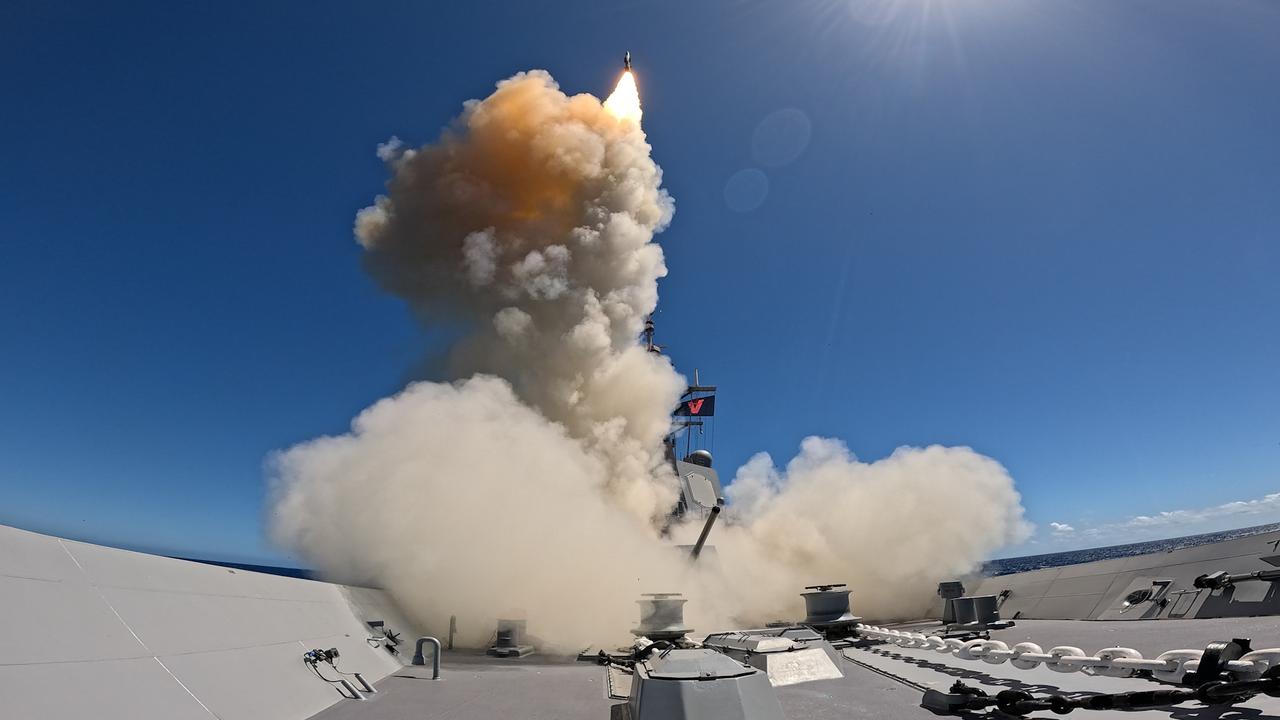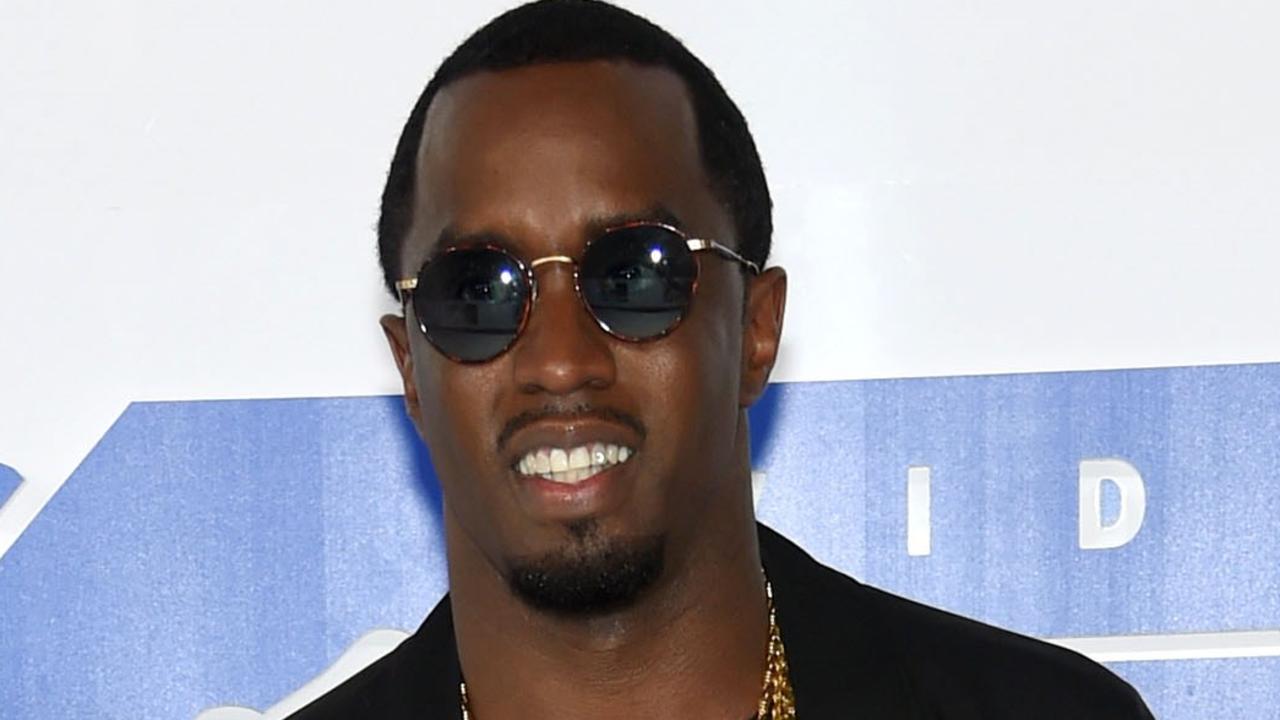‘It’s going down’: NATO warns time is running out as Russia starts war games in Belarus
NATO says the time to warn of a possible attack on Ukraine is “going down” as Russia sends 30,000 troops to Belarus for war game drills.
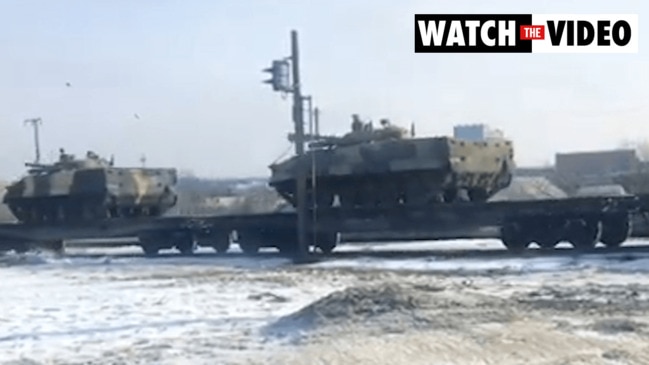
World
Don't miss out on the headlines from World. Followed categories will be added to My News.
Russia has launched joint “war game” drills with Belarus as NATO said the time to warn for a possible attack against Ukraine “is going down”.
NATO Secretary-General Jens Stoltenberg said Thursday that the current situation along Ukraine’s border is a “dangerous moment for European security”, and that the decision to attack is still to be made.
“The number of Russian forces is going up [and] the warning time for a possible attack is going down,” he said.
His comments came after the United States said 30,000 troops were sent to Belarus from the far east of Russia.
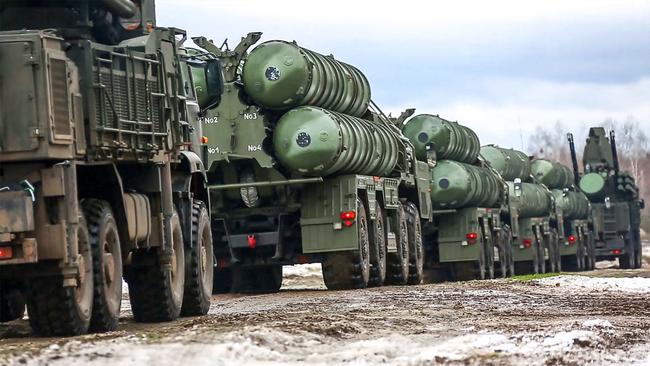
The Belarus war games, set to run until February 20, are the latest point of contention between Russia and the West over Ukraine. Kiev quickly denounced the manoeuvres as “psychological pressure”.
French Foreign Minister Jean-Yves Le Drian called the exercises “a very violent gesture” while British Foreign Secretary Liz Truss used a visit to Moscow to accuse Russia of attempting “to undermine Ukrainian sovereignty”.
Columns of Russian missile systems rolled across snow-carpeted fields on the eve of the start of the drills in footage released by the defence ministry.
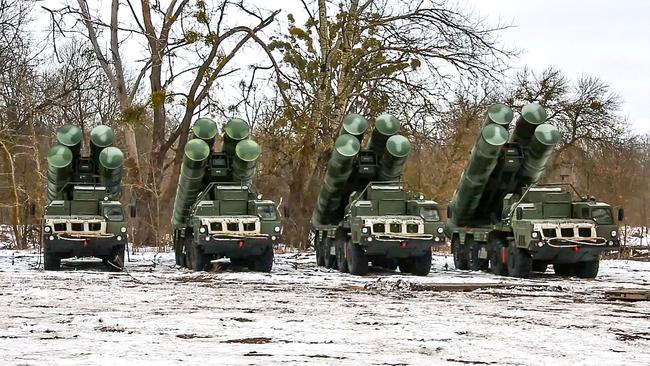
Russia previously sent six warship through the Bosphorus for naval drills on the Black Sea and the neighbouring Sea of Azov. Kiev denounced their presence as an “unprecedented” attempt to cut off Ukraine from both seas.
Moscow and Minsk have not disclosed how many troops are taking part in the military exercises in Belarus.
“The objective of the exercises is to practise suppressing and repelling external aggression with a defensive operation,” the Russian defence ministry said in a statement.
Kiev has launched its own military drills expected to mirror Russia’s games in Belarus, but officials have said little about them out apparent fear of escalating tensions.
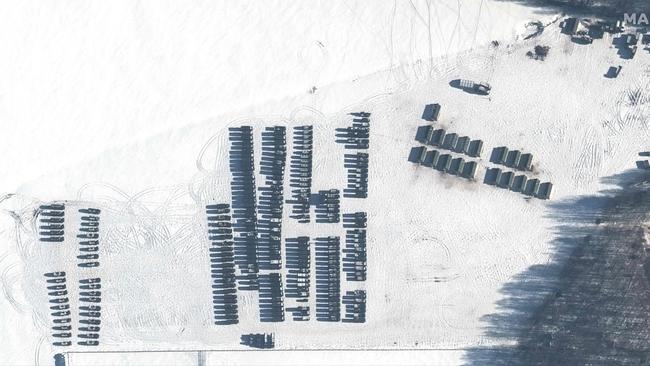
UKRAINE CALLS RUSSIA’S BLUFF
A top Ukrainian defence official has claimed that Russian forces massed near the ex-Soviet state’s borders don’t appear ready to launch an assault and that they’re really only there “for political pressure and blackmail”.
On Wednesday, Deputy Defence Minister Ganna Malyar said the forces – estimated at more than 100,000 soldiers backed up by heavy artillery and tanks – were likely on display as part of a scare tactic rather than because they’re preparing to act at this stage.
US officials in Washington have said Russia appeared to have 70 per cent of the troops and equipment needed to launch a mass invasion of Ukraine.
Malyar told reporters in the government-held eastern frontline town of Avdiivka that the threat of a Russian attack was real.
But she stressed that talk of an imminent war was premature. “We see a concentration of military personnel and equipment. But as of today, they are not forming assault groups,” Malyar said.
“We also do not see the formation of the infrastructure needed for an immediate escalation.” But she added: “This does not mean that there is not a threat.”
European leaders have started to voice some hope that earlier fears of a full-scale war breaking out in the coming days or week were fading thanks to an intense diplomatic push.
RUSSIA DENIES UKRAINE DEAL AMID NUCLEAR WARNING
Russia has rejected reports French President Emmanuel Macron “secured an assurance” with Vladimir Putin that “there would be no deterioration or escalation” with Ukraine.
Macron said Putin had told him during a five-hour meeting at the Kremlin on Tuesday that Russia “would not be the source of an escalation,” in the situation, despite amassing more than 100,000 troops and military hardware on Ukraine’s border.
The French leader said he now saw the “possibility” for talks involving Moscow and Kiev over the festering conflict in eastern Ukraine to move forward, and “concrete, practical solutions” to lower tensions between Russia and the West.
“We cannot underestimate the moment of tension that we are living through,” Macron said at a joint press conference after meeting Zelensky.
“We cannot resolve this crisis in a few hours of talks,” he said.
“It will be the day and the weeks and the months to come that will allow us to progress.”
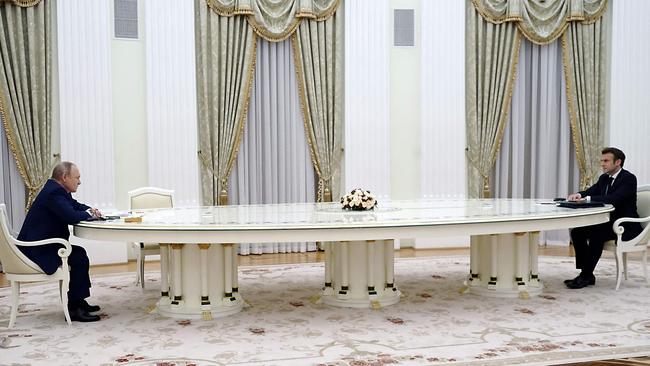
But Kremlin spokesman Dmitry Peskov said the reports were “essentially wrong” because it was “simply impossible” for Moscow and Paris to “conclude any deals”.
“France is the EU presidency, France is a member of NATO, where Paris does not have leadership. In this bloc, the leadership belongs to a completely different country. What kind of deals can we talk about?”, Peskov said.
He said Russia is not “sensing any real ways towards a solution” and warned that “de-escalation is really, really needed” because “tensions are rising day by day”.
PUTIN THREATENS NUCLEAR WAR
Putin, in a press conference after the Macron talks, warned nuclear war could break out if Ukraine joins NATO.
“If Ukraine joins NATO and attempts to bring Crimea back by military means, the European countries will be automatically pulled into a war conflict with Russia?,” Putin said.
“Of course the potential of NATO and Russia are incomparable. We understand it.
“But we also understand that Russia is one of the leading nuclear states, and by some modern components it even outperforms many.
“There will be no winners. And you will be pulled into this conflict against your will.
“Mr President Macron, of course, doesn’t want this. And I don’t want it. And I don’t want it …. which is why he is here.”
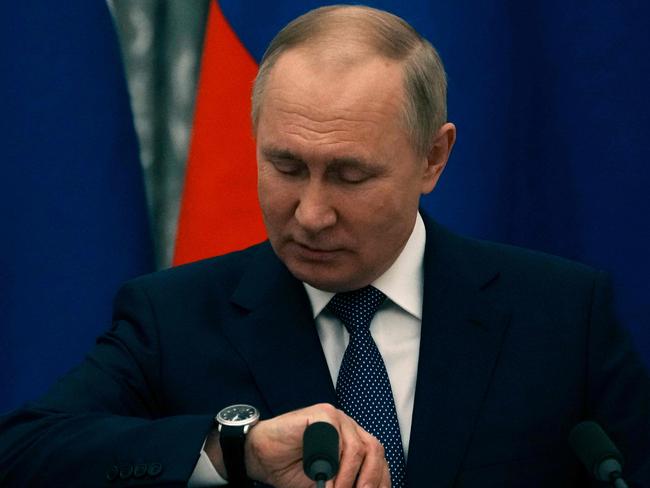
Macron later held talks with Ukraine’s President Volodymyr Zelensky in Kiev, as the West scrambles to defuse fears Moscow could invade its ex-Soviet neighbour.
Zelensky said he expected “in the near future” there would be talks between Russia, France and Germany about resolving the ongoing conflict in eastern Ukraine. But he called on Mr Putin to take serious measures to reduce tensions.
“I do not really trust words, I believe that every politician can be transparent by taking concrete steps,” he said.
Macron landed later Tuesday in Berlin where he is due to debrief Polish President Andrzej Duda and German Chancellor Olaf Scholz, who himself has just returned from Washington.
The European leaders, meeting in the so-called Weimar format, are expected to present a united front.
Zelensky said he hoped separate talks of high-ranking officials in Berlin on Thursday could pave the way for a summit with the leaders of Ukraine, Russia, France and Germany aimed at reviving the stalled peace plan for Kyiv’s conflict with Moscow-backed separatists.
Putin – who has demanded sweeping security guarantees from NATO and the United States – said after his talks with Macron that Moscow would “do everything to find compromises that suit everyone”.
He said several proposals put forward by Macron could “form a basis for further steps” on easing the crisis over Ukraine, but did not give any details.
FRENCH PROPOSALS
At the same time as sending its military hardware to Ukraine’s borders, Putin has issued demands the West says are unacceptable, including barring Ukraine from joining NATO and rolling back alliance forces in eastern Europe.
The French presidency said Macron’s counter-proposals included an engagement from both sides not to take any new military action, the launching of a strategic dialogue and efforts to revive the peace process for Ukraine’s conflict.
It also said an agreement would ensure the withdrawal of some 30,000 Russian soldiers from Belarus at the end of joint military exercises later this month.
The Kremlin insisted that it never had any intention of leaving the troops permanently on Belarusian territory.
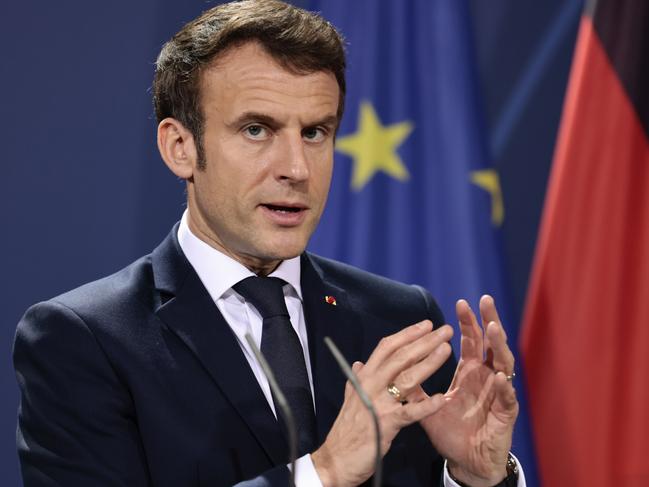
The West faces a tough task trying to convince a wary Zelensky to accept any compromises.
Kiev has laid out three “red lines” that it says it will not cross to find a solution – no compromise over Ukraine’s territorial integrity, no direct talks with the separatists and no interference in its foreign policy.
Moscow is pressuring Ukraine to offer concessions to the Russian-backed rebels who have been fighting Kiev since 2014 in a conflict that has claimed over 13,000 lives.
Ukraine says the Kremlin wants to use the two breakaway eastern regions Russia supports as leverage to keep the country under Moscow’s sway.
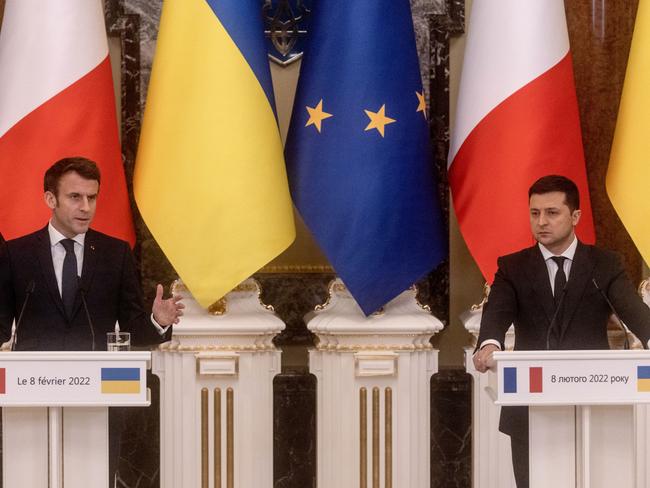
RUSSIA SENDS WARSHIPS
Russia has denied it is planning an invasion – but the US warns it has massed 70 per cent of the forces it would need for a large-scale incursion.
Moscow kept bolstering its forces around Ukraine on Tuesday as it announced six warships were heading to the Black Sea from the Mediterranean as part of previously planned global maritime manoeuvres.
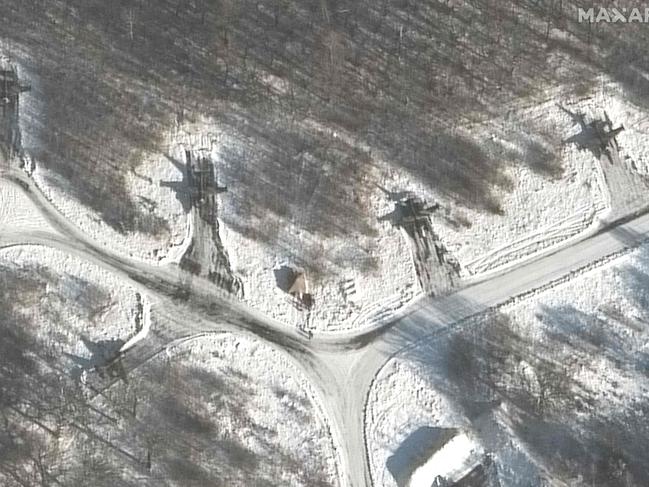
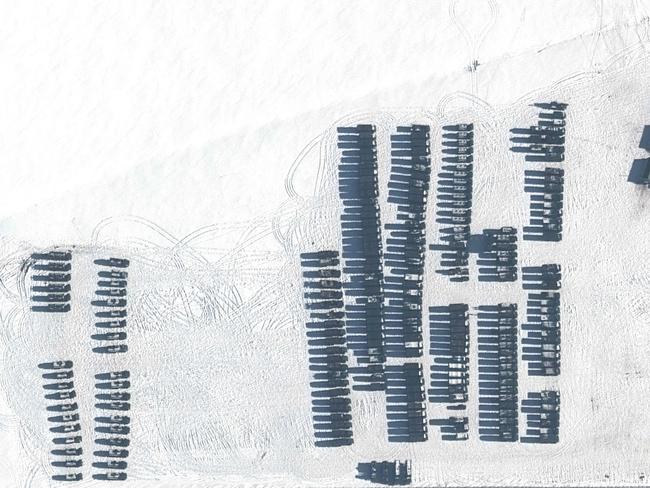
Ukraine’s Defence Minister Oleksiy Reznikov told local television that Kiev was planning to hold its own exercises involving Western-supplied antitank missiles and Turkish combat drones in response to the Russian-Belarusian drills.
US President Joe Biden meanwhile ramped up the pressure on Moscow Monday by warning he would “end” the controversial new Nord Stream 2 gas pipeline from Russia to Europe if tanks rolled into Ukraine.
Biden’s declaration at a press conference with Scholz was the bluntest so far on the fate of the massive pipeline, which is complete but has yet to begin funnelling natural gas.
Scholz was less direct and said only that Berlin was “united” with Washington in imposing sweeping sanctions on Russia, declining to mention the pipeline by name.
Scholz will be in Moscow and Kiev next week for talks with Putin and Zelensky.
More Coverage
Originally published as ‘It’s going down’: NATO warns time is running out as Russia starts war games in Belarus



